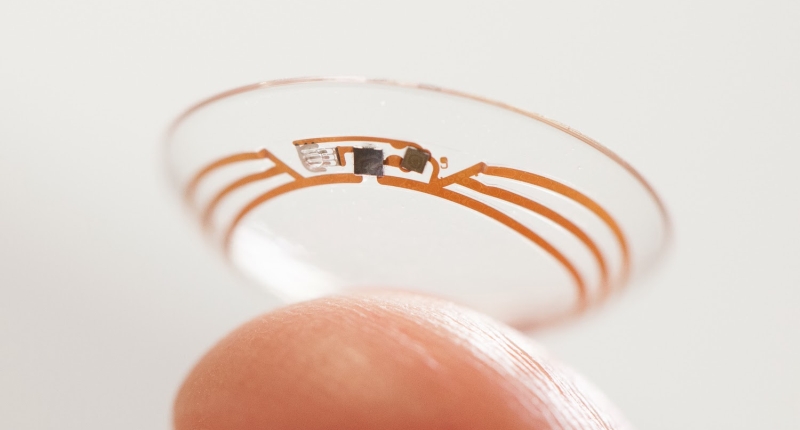With stablecoins gaining traction and regulation improving, African merchants may be nearing a crypto tipping point. Here’s why 2026 could mark a shift from hesitation to adoption.
Google’s new pupil: diabetes-detecting contact lenses


Is this smart wearables gone mad? Google’s latest venture, teaming up with a Swiss biomedical firm, may send alarm bells ringing in the minds of the meek. Novartis’s Alcon ocular division will license Google’s smart contact lens technology to create a diabetes-monitoring, cornea mounted device.
This super lens holds a tiny smart sensor that monitors the glucose levels of tears, wirelessly relaying it (once per second) to a mobile device. Should the reading fall within the red zones, an alert will be issued to the wearer, possibly via “tiny LED lights that could light up,” note project co-founders Brian Otis and Babak Parviz. Of course, being a contact lens, it will also improve the vision of those with farsightedness.
Google has been waiting for partners since it launched the endeavour in January this year. But what does this partnership mean for the Internet of Things, smart wearables and the growing reliance of humans on these technologies?
Smart human(oid)s
We can’t carelessly fling the term “posthuman” around just yet, but technology is surely hurtling swiftly toward that predicament. Smart, wirelessly connected contact lenses certainly calls into question the security of personal medical information, if anything. Augmenting life to improve living conditions does have both positive and negative effects though.
But questioning the advantages this system could yield for the general public is futile. The World Health Organisation predicts that in 15 years, 366-million people will be affected by the ailment. Tracking diabetes also comes with early warning benefits for knock-on issues, like heart disease. Without question, such utilitarian technology may have more relevance than smartwatches for instance, or more pertinently, Google Glass.
The future tomorrow
Smart wearables, although not quite manifesting in a Deus Ex or Terminator-type scenario, will become an increasingly interesting problem in the future. Incredibly, “living technology” or cyborgism, doesn’t seem that farfetched a concept as it did ten years ago.
With Google’s fabrication skills and Novartis’ medical knowledge, the partnership hopes to start shipping the lenses by 2015. The partnership however is currently awaiting anti-trust approvals.


